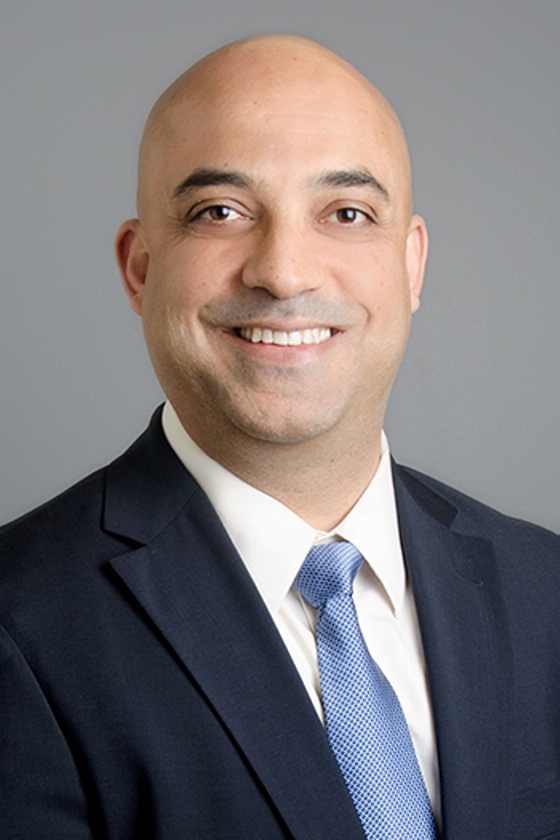KATHMANDU, May 18: Stroke remains a significant public health issue, but advances over the past two decades have transformed its treatment landscape, particularly in developed nations. Thanks to new treatment technologies and pharmaceutical developments, the incidents of stroke are declining in these countries.
Associate Professor and Neurologist at the University at Buffalo, Dr Amit Kandel believes that developing countries, including Nepal, can similarly reduce occurrences of stroke by adopting these advanced methods. Dr Kandel advocates for the establishment of specialized stroke treatment centers within major hospitals to significantly decrease stroke-related deaths and disabilities.
"Expanding treatment services both within and beyond the Kathmandu Valley is crucial for addressing Nepal's stroke problem," he said during his recent visit to Nepal for a two-day stroke workshop at Dhulikhel Hospital.

Dr Amit Kandel
During discussions with the locals, Dr Kandel said that there is potential for stroke to become a major issue in Nepal and other developing nations unless proactive measures are taken. He stressed the importance of government intervention in treatment management and highlighted that well-organized health services and increased public awareness can mitigate the impacts of stroke.
Maternal mortality rate being studied for the first time in Nep...

According to Dr Kandel, stroke was once the second leading cause of death in the United States, but advancements in treatment over the past 30 years have reduced its severity, now ranking it fifth. "America's effective management of stroke treatments has shown that it's possible to mitigate the problems it causes," he said.
Dr Kandel expressed concern about the future of stroke in Nepal and other developing countries, predicting a severe escalation between 2030 and 2050. Citing a report from the British medical journal The Lancet, he warned that during this period, 85 percent of stroke victims could die, and 89 percent might suffer disabilities.
Despite the availability of drugs and technology for treatment of stroke, Nepal struggles with inadequate treatment management and lack of public awareness, leading to high rates of disability and death from stroke. "While the tools for treatment exist, Nepal's challenge lies in the shortage of skilled professionals and lack of policy commitment," Dr Kandel said.
He also labeled stroke as a political and social disease, attributed to governmental failures in healthcare management. "Though it appears primarily as a neurological issue, its roots extend into political and social realms due to inadequate government action."
According to Dr Kandel, political will is crucial to reducing the impact of stroke. He highlighted that 50 to 60 percent of stroke patients suffer due to poor access to treatment. According to him, establishing necessary infrastructure, skilled manpower, and raising public awareness can significantly mitigate the damage.
Currently, Nepal has only 36 skilled neurologists, a starkly low number considering the population. Dr Kandel advocates for the creation of stroke centers in major cities or within an hour's air distance, training local health workers in stroke recognition, and establishing stroke centers in every major hospital to ensure timely treatment.
"This issue should be a priority for the government," he said. He also suggested that damage could be minimized with proper pre-hospital care, equipped ambulance services, and free medication at hospitals.
What is a stroke?
There are two types of strokes: 70% of the time, they are caused by a blockage in a blood vessel, while 30% of the time, they result from a burst blood vessel casuing bleeding in the brain. Both blockage and bleeding lead to brain injury.
If the left side of the brain is affected, it can lead to communication problems as well as weakness and numbness on the right side of the body. Conversely, an injury to the right side of the brain can impact perception and cause weakness and numbness on the left side. The back part of the brain controls vision, balance, and coordination, and injuries to this area can result in changes in strength anf weakness.
Preventive measures
For the best chance of recovery from stroke, it is crucial to act quickly: clot-busting medication is effective within 4.5 hours, and a thrombectomy procedure can be performed within 6 to 24 hours. However, the sooner patients reach the hospital, the better their outcomes, even if they don't receive clot-busting medication or a thrombectomy. Early medical intervention of recognizing stroke symptoms and seeking immediate help.
Of the patients treated with clot-dissolving drugs, 94% do not have any bleeding complication but benefit outwighs the risk with clot busting medication.
While these medications and procedures are expensive, they are cost-effective for society and the country. Therefore, local and federal governments should provide clot-busting medication and thrombectomy procedures for free. The costs are offset by the savings from reduced disability and improved outcomes. To ensure timely treatment, these medications and devices should be readily available in hospital pharmacies.
Cost for clot-busting medication is around Rs 65,000 to Rs 90,000. Cost of thrombectomy services in Nepal is around Rs 400,000 to 1,100,000 based on the devices used.
Dr Kandel emphasizes that air ambulances could be particularly effective in geographically challenging regions like Nepal, enhancing the accessibility and timeliness of stroke treatment.





































